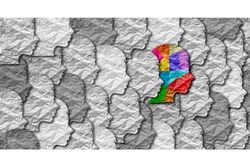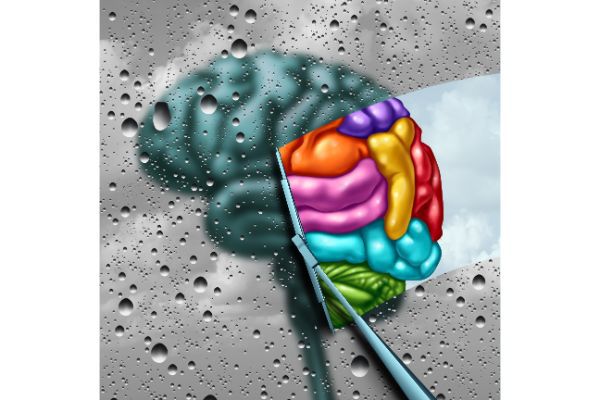|
Can dirty air lead to a higher prevalence of mental illness? A new studysuggests that as air quality declines, the prevalence of mental health disorders increases.
The Study The study looked at the data of millions of people in the United States and Denmark. The researchers found a correlation between exposure to air pollution and a higher rate of certain mental health conditions. There was a 29% increase in instances of bipolar disorder in areas with poorer air quality. In addition, childhood data from Denmark noted that people who were exposed to polluted air in the first ten years of life were at a greater risk of developing schizophrenia, depression, and personality disorders. In the United States portion of the study, researchers looked at health insurance claims for 151 million Americans, noting diagnoses for mental health conditions between 2003 and 2013. There was no way to gauge an individual’s exposure to air pollution. In an effort to track air pollution exposure, the study investigated air quality in each person’s county of residence. Researchers divided the counties into groups based on levels of pollution and found an increase in mental health diagnoses in those counties with the highest pollution level. Is Air Pollution the Cause? None of this data proves that air pollution is to blame for mental health disorders. It only demonstrates a correlation. The data alone can’t establish a causal link. Experts have noted that the study could lead to further research that may explain the correlation. However, animal research has been done that shows a link between air pollution and mental health disorders. Research has shown, for example, that pollution particles can make their way through a rodent’s nose and into their brain. In addition, lab animals exposed to air pollution have demonstrated signs of brain disorders, depression-like symptoms, and impaired learning and memory. Researchers warn that this data does not mean that pollution has the same effect on humans. If you or a loved one has a mental disability and has been arrested or convicted of a crime, you need an experienced criminal defense attorney on your side. Elizabeth Kelley specializes in representing individuals with mental disabilities. To schedule a consultation call (509) 991-7058. Los Angeles County may make important changes to how it handles individuals in the criminal justice system. There was a $1.7 billion contract in place to build a new jail to replace Men’s Central Jail in downtown Los Angeles. Although all parties agree that the dungeon-like downtown jail is in need of replacement, the county had other priorities in mind. In August 2019, county executives voted to cancel the contract with McCarthy Building Co. and to focus on building a new facility that will have a greater focus on mental health services.
Mental Health in Jail It is a cliché that county jails across the country have become de facto mental health facilities. Many individuals with mental health issues find themselves tied up in the criminal justice system. However, county jails don’t always have the resources and the treatment that these individuals need. Los Angeles County's policy shifts away from a large centralized jail to a focus on mental health. The county’s jail system currently houses around 17,000 inmates, about a third of whom receive some form of mental health treatment. This shift in philosophy recognizes the changing dynamics of the criminal justice system. The current plan is still in the planning stages, but the county is hoping to build a new facility called the Mental Health Treatment Center. Rather than being run by the Sheriff's Office which is responsible for the county's jails, the new facility would be run by the county's Department of Mental Health. The facility would focus on rehabilitation and use the services of a limited number of deputies for security. The ultimate plan hasn't been finalized, and the idea of a number of smaller mental health facilities is still on the table. Some members of the community feel that the new facility is just another glorified jail. They believe that the county's money could be better put to use establishing community services, housing programs, reentry programs, and alternative treatment options. Diverting individuals with mental health issues away from the criminal justice system may reduce the need for another facility. If you or a loved one has a mental disability and has been arrested or convicted of a crime, you need an experienced criminal defense attorney on your side. Elizabeth Kelley specializes in representing individuals with mental disabilities. To schedule a consultation call (509) 991-7058.  It is an unfortunate reality that law enforcement is usually the first responders when an individual is suffering from a mental health crisis. Interactions between individuals in crisis and law enforcement can sometimes have tragic consequences. Without proper training, a police officer may not know how to handle someone with a mental health issue. In order to curb this problem, some law enforcement agencies, such as the Pasco County Sheriff's Office in Florida, have formed mental health units who specialize in these situations.
Mental Health Unit The Pasco County Sheriff has established a new unit called the Mental Health and Threat Assessment Team, which will interact directly with individuals who are experiencing a mental health crisis. The lieutenant placed in charge of the unit has traveled around the country to see how other agencies have managed the interaction between mental illness and policing. This new unit will consist of deputies who have received specialized training in how to deescalate situations involving mental health crises. Pasco County deputies responded to nearly 20,000 mental health calls in 2018 alone. About 500 of these calls resulted in people being involuntarily hospitalized. There was a clearly a need for a specialized unit, but will it go far enough? One unit may not be sufficient to cover all mental health calls. All law enforcement officers should receive sufficient training on how to manage these calls. It is important for officers to recognize the diversity of the people they serve and have the proper tools for recognizing and deescalating situations involving mental health crises. When states like Florida make cuts to mental health services, the need for appropriately trained law enforcement becomes even more essential. It can be helpful to have specialized units that have input from mental health professionals. However, it is also important for officers and deputies on the street to have sufficient knowledge to recognize when there is a mental health issue. This can prevent tragic situations from occurring. If you or a loved one has a mental disability and has been arrested or convicted of a crime, you need an experienced criminal defense attorney on your side. Elizabeth Kelley specializes in representing individuals with mental disabilities. To schedule a consultation call (509) 991-7058. Many young children are picky eaters, and it's not surprising when a child has a limited menu of foods they like to eat. However, when eating habits in young children are extreme, researchers say this could be an early sign of autism. A new study finds that atypical eating habits, such as hypersensitivity to textures and pocketing of food in the mouth rather than swallowing, are common in children with autism.
Study The study out of the Penn State College of Medicine analyzed parent descriptions of the eating habits of over 2,000 children. Typical children were compared to those with autism, attention-deficit/hyperactivity disorder, and other developmental disorders. Atypical eating habits were found to be seven times more common in children with autism than in children with other developmental disorders. These eating habits included things such as very limited food preferences, hypersensitivity to food temperature and texture, and pocketing food without swallowing. Most of the children with autism had two or more atypical eating habits. Nearly 25% of them had three or more. None of the children with other developmental disorders had three or more atypical eating habits. Unusual eating habits could signal to parents and doctors that a child may have the disorder, researchers say. Doctors who learn of these behaviors should refer children for autism screening. The recognition of atypical eating habits can also help doctors distinguish between signs of autism and other developmental disorders. The earlier autism is diagnosed, the sooner children can receive the treatment and support they need, which can lead to better outcomes. Treatment with a behavioral analyst can be very helpful during the preschool years. Interventions can make positive changes in children's behavior and help them learn appropriate skills. Early treatment can also help curb some atypical eating habits. This can help ensure that these children receive the appropriate nutrition. If you or a loved one has a mental disability and has been arrested or convicted of a crime, you need an experienced criminal defense attorney on your side. Elizabeth Kelley specializes in representing individuals with mental disabilities. To schedule a consultation call (509) 991-7058. Digital technology has the potential to transform mental health care. Thousands of apps are on the market with promises to help soothe mental health issues. Smartphones allow for the continuous monitoring of people with mental illness. Now officials in California are looking at a new approach to technology and its use to help those with mental illness.
For the past year, California state and county mental health officials have been working with Mindstrong, a venture co-founded by a former director of the National Institute of Mental Health. These entities have been working together to test new smartphone apps for people receiving care through the state’s mental health system. The apps being tested are already available to the public. Digital Fire Alarms Most of the users involved in the testing have been diagnosed with borderline personality disorder. The apps monitor the users’ activity on their phones to determine whether they may be on the verge of a mental health crisis. An alternate keyboard is digitally installed on the phone and monitors the moment-to-moment activity on the phone. People with borderline personality disorder often have trouble determining when they are in crisis. These digital fire alarm apps can indicate when they may be in crisis based on their phone usage. Users can then use the skills they’ve learned to help lessen the crisis or to seek help. Other apps provide users in distress with trained listeners who will chat with the user by text. The trained listener then judges the severity of the user’s problem and connects them with necessary resources such as a counselor. The app gives a person the opportunity to discuss their issues with another person and potentially obtain the help they need. Growing Pains We're still a long way away from these apps being used on a regular basis to solve mental health crises. Questions about privacy and the effectiveness of the apps still arise. People may not be ready to share their personal mental health information with the companies that provide the apps. Further tests regarding the effectiveness of the apps are still needed. If you or a loved one has a mental disability and has been arrested or convicted of a crime, you need an experienced criminal defense attorney on your side. Elizabeth Kelley specializes in representing individuals with mental disabilities. To schedule a consultation call (509) 991-7058. The United States has the worst rate of maternal deaths among developed countries. As a pregnant woman in the United States, you are more likely to die from pregnancy-related problems than in any other developed nation. While many of these maternal deaths are the result of obstetric health issues, a new study finds that a significant number of new mothers die by suicide within a year after the birth of their child.
Study The study out of Michigan State University and the University of California tracked one million California moms for a year after their child was born. Three hundred of the women in the study died during that time. While obstetric issues were the number one cause of death, drug overdose and suicide factored significantly in causes of death. Drug overdoses were the second leading cause of death, and suicide was the seventh. This study reflects that drug addiction and mental health issues among new mothers must be addressed. Many new moms feel helpless and alone after giving birth and may be afraid to seek help for their addiction or mental health issues. Postpartum depression and anxiety are common, and physicians in this country must do a better job of screening new moms for these conditions. Treatment for postpartum mental health issues should continue beyond the first few months after giving birth. Most insurance plans cover a six-week postpartum checkup, but beyond that point, moms are on their own. According to the study, the majority of deaths occurred more than six months after the moms had given birth. Fear of seeking help is another major factor in why women are suffering from addiction and mental health issues. Many women fear that if they admit that their mental health is suffering, then their child will be taken away from them. This keeps many women from seeking the help they need. We need to provide new moms with better supports and help to prevent them from suffering and to help reduce the overall maternal mortality rate in this country. If you or a loved one has a mental disability and has been arrested or convicted of a crime, you need an experienced criminal defense attorney on your side. Elizabeth Kelley specializes in representing individuals with mental disabilities. To schedule a consultation call (509) 991-7058. Children in rural counties across the country experience the same mental health issues as other children. Yet they don’t have the same access to mental health resources as children in urban and suburban counties do. In some cases, the nearest therapist can be hours away. This lack of support may change with the use of telehealth therapy.
What is Telehealth Therapy? Telehealth therapy is typically performed through the use of video teleconferencing. However, it can also be performed through text messaging, email, or by telephone. Telehealth therapy has been found to be just as effective as in-person therapy and improves access to care for people who can't easily obtain it. Children in Rural Counties Children should be able to access the mental health treatment they need, and the use of telehealth therapy is making that easier. States such as North Dakota,where over 90% of counties lack sufficient mental health services, have instituted programs to increase access to telehealth technology. With the state's Telehealth Outreach Program, providers in larger cities can connect with children in areas where there are few or no available mental health supports. The service is currently available free of charge to children aged 7 to 18 who have experienced trauma. Families receive special "locked down" iPads to be used for therapy only. In addition, telehealth therapy for children often involves the use of toys and other supplies such as journals and coloring supplies. Younger children often respond better to play therapy than traditional talk therapy. Families in the North Dakota program receive boxes containing these materials so they can be used during therapy. North Dakota has found that more children participate in and complete therapy when they are given access to telehealth therapy. This is because parents are not forced to miss work or taking the time to drive hours away in order to attend sessions. The consistency and convenience of telehealth therapy make it more helpful and less stressful for children and their families. If you or a loved one has a mental disability and has been arrested or convicted of a crime, you need an experienced criminal defense attorney on your side. Elizabeth Kelley specializes in representing individuals with mental disabilities. To schedule a consultation call (509) 991-7058. For almost forty years in California, the Lanterman Act has helped people with intellectual and developmental disabilities (I/DD) by providing a network of centers that offer specialized care. Hundreds of thousands of individuals with I/DD depend on the Act for the support they need to lead independent lives. Now advocates, including state senators and assemblymen, are calling for an increase in funding for the Act.
The advocate group, calling themselves the Lanterman Act Coalition, is seeking an 8% increase in funding for the Act. This increase included $290 million to restore and stabilize the system. Instead of an 8% increase, the governor's revision of the state budget included an increase of only 4.85%. Advocates state that a further increase is needed in order to ensure that individuals with I/DD have the ability to live full, integrated lives and that their caretakers are paid a living wage. Current Supports As it currently stands, the support structure for individuals with I/DD in California is lacking. Almost half of providers have to waitlist or turn away individuals seeking services. This leads to many people being denied the care they need. The amount of available services has been declining with an estimated 28,000 programs having closed in the last few years. Funding shortages result in individuals languishing on waiting lists and programs encountering problems hiring professional staff. Parents of individuals with I/DD support the increase in funding. Many parents have experienced great strides being made to help their children while they are in school but fear for the future when their children become adults. The lack of adequate supports can lead to more pressure on parents. In addition, many individuals with I/DD have been involved in their support programs for decades. The people that care for them have been like family. As more programs close or move, these individuals face a great upheaval in their lives, which can be detrimental to their success. It is clear that this increase in funding is crucial to the successful support of individuals with I/DD. If you or a loved one has a mental disability and has been arrested or convicted of a crime, you need an experienced criminal defense attorney on your side. Elizabeth Kelley specializes in representing individuals with mental disabilities. To schedule a consultation call (509) 991-7058. |
Details
Archives
March 2024
Categories |







 RSS Feed
RSS Feed